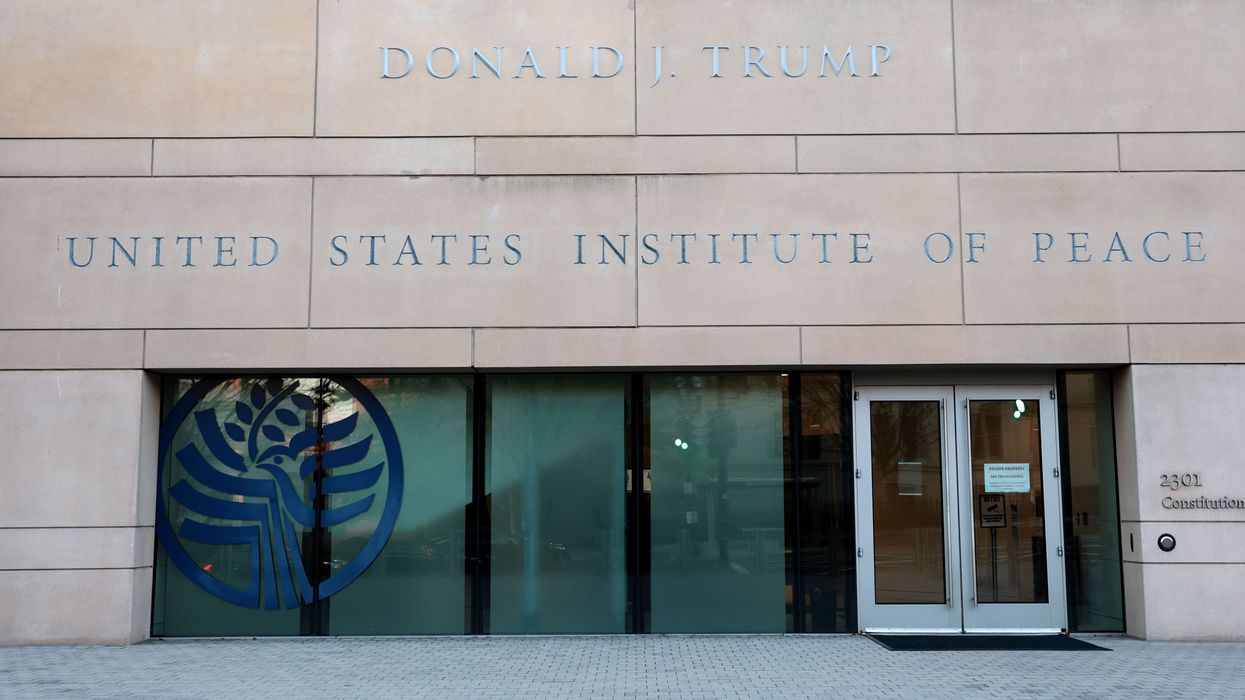October, 02 2008, 03:11pm EDT

Somalia: Surge in Wounded and Displaced as Violence Increases in Mogadishu
MSF Teams Providing Assistance Amidst Difficult Security Conditions
Nairobi/Geneva/New York
The recent escalation in fighting in one of Mogadishu's most
populated residential areas has resulted in a surge of wounded
civilians and has once again displaced thousands of people. The
international medical humanitarian organization Doctors Without
Borders/Medecins Sans Frontieres (MSF) is treating some of the wounded
and is providing basic relief supplies to newly displaced people.
As of last week, MSF had treated more than 100 wounded people in the
Dayniile hospital, located on the outskirts of the capital. The
wounded, many of whom are women and children under 16 years-of-age, had
suffered head, abdomen, and chest injuries caused by mortar rounds or
bullets, with many of them requiring emergency surgery.
On the road from Mogadishu to Afgooye, where more than 250,000
displaced people are living in appalling conditions, MSF has seen the
arrival of at least 9,000 more people since last Wednesday. Teams are
trying to provide them with essential supplies including soap, plastic
sheeting, and blankets. However, these basic items will only meet
initial emergency needs. People are completely dependent on external
food aid to survive, but assistance is provided intermittently.
Families who just fled the violence in Mogadishu are met with a lack of
shelter, food, and health care.
The situation is appalling," said Kenneth Lavelle, MSF head of mission
based in Nairobi who is in daily contact with MSF field teams. Because
of the constant flow of people fleeing Mogadishu, the camps are getting
more and more crowded and already atrocious living conditions are
rapidly deteriorating. Families of five have less than a few square
meters to settle in, without proper shelter," he said.
MSF has been working in health centers in Hawa Abdi and Afgooye
since 2007 and has treated more than 1,000 children suffering from
acute malnutrition every month since April 2008. Working
conditions-primarily the lack of security for the population and for
aid workers-prevent any significant increase in this vital aid.
"Despite all of the insecurity, MSF has still been able to respond
thanks to our Somali colleagues, who are taking tremendous risks to
provide immediate assistance," said Lavelle. "Due to the security
situation, we are unable to meet any needs other than the immediate,
life-saving needs. This includes medical care, nutrition, and
sanitation. Our response is most certainly inadequate when taking into
account the gravity of the situation."
MSF staff in Dayniile hospital have treated 3,700 people
suffering from trauma injuries since the beginning of 2008. More than
half of these are women and children under 14, with half of the
patients treated for injuries sustained during fighting.
MSF has carried out 32,982 medical consultations and cared for
6,937 children suffering from acute malnutrition in its Hawa Abdi and
Afgooye health centers since April 2008.
Doctors Without Borders/Medecins Sans Frontieres (MSF) is an international medical humanitarian organization created by doctors and journalists in France in 1971. MSF's work is based on the humanitarian principles of medical ethics and impartiality. The organization is committed to bringing quality medical care to people caught in crisis regardless of race, religion, or political affiliation. MSF operates independently of any political, military, or religious agendas.
LATEST NEWS
Yet Another Trump Jr.-Backed Company Receives Massive Pentagon Deal
One legal expert said the contract "falls under the cloud of conflicts of interest we have seen throughout this administration."
Dec 04, 2025
For the second time this year, a little-known company backed by Donald Trump Jr. has scored a major contract with the US Department of Defense.
The Financial Times reported on Wednesday that Vulcan Elements—a tiny startup of 30 employees that specializes in producing rare-earth magnets used in drones, radars, and other pieces of military equipment—has scored a $620 million loan from the Pentagon as part of "a $1.4 billion deal to increase the supply of magnets for industries alongside partner ReElement Technologies."
Vulcan has received funding from 1789 Capital, a venture capital firm founded by pro-Trump donors in 2023 that brought Trump Jr. in as a partner last year. According to the Financial Times' analysis, "at least four of 1789’s portfolio companies have won contracts from the Trump administration this year, amounting to more than $735 million."
Revelations about the Vulcan Elements contract come just weeks after the Florida-based drone startup Unusual Machines, in which Trump Jr. has held a $4 million stake, received a contract from the US Army to manufacture 3,500 drone motors. Additionally, reported the Financial Times, the Army indicated that it planned "to order an additional 20,000 components" from the Trump Jr.-backed firm next year.
As Popular Information reported earlier this year, Unusual Machines first brought Trump Jr. on as an adviser just weeks after his father won the 2024 presidential election, even though he had " no notable experience with drones or military contracting."
A Popular Information report published Thursday noted that "both Vulcan CEO John Maslin and Unusual Machines CEO Allan Evans said that Trump Jr. played no role in securing the government contracts," although the report flagged statements by Trump Jr. made earlier this year about helping to screen candidates for key positions in the Pentagon who would be in position to reward companies he's backing without him having to make a direct appeal.
Kedric Payne, general counsel at the Campaign Legal Center, told the Financial Times that that the government deals scored by Trump Jr.-backed companies look ethically dubious even if the president's son didn't directly use his influence to procure them.
“Presidents are expected to avoid even the appearance that they are using their office to financially benefit themselves or their family,” he said. “While we do not know for certain if, or how, the president may have influenced this loan, it falls under the cloud of conflicts of interest we have seen throughout this administration.”
Keep ReadingShow Less
Genocide Backer and Narcissist Donald J. Trump Puts His Name on 'US Institute of Peace'
"This is pathetic, like a little boy running around putting 'Property of Donald' stickers on everything in the house," said one critic.
Dec 04, 2025
The signs on the building of the United States Institute of Peace were changed overnight to include "Donald J. Trump," adding the name of the sitting US president who, among other examples of warmongering and war-making, has openly supported the Israeli genocide in Gaza, bombed Iran, sent an aircraft carrier strike group to threaten Venezuela, and ordered the extrajudicial killings of over 80 people aboard boats in the Caribbean and Pacific in recent months.
The building’s name change preceded a meeting on Thursday between leaders of Rwanda and the Democratic Republic of Congo, where a proposed peace deal between the two warring nations is set to be signed. It also came amid an ongoing clamoring by the president to be recognized as a great maker of peace despite his record of violence, thuggery, racism, and human rights violations.
Critics of the move were swift in their condemnation of Trump, known more for being possibly the most famous narcissist in the history of humanity than for waging anything that remotely looks like a just and lasting peace.
"This is pathetic, like a little boy running around putting 'Property of Donald' stickers on everything in the house," said Tom Nichols, a staff writer at The Atlantic magazine. "It's not the Trump institute of peace, it's the US Institute of Peace."
Trump, who has repeatedly expressed his desire to be awarded the Nobel Peace Prize, has a long history of supporting and conducting overseas military operations and backing the worst actors on the world stage when it comes to war crimes and human rights abuses, counting as his close allies Israeli Prime Minister Benjamin Netanyahu, wanted by the International Criminal Court on war crimes charges, and Saudi Crown Prince Mohammed bin Salman, implicated by Trump's own CIA as the person who ordered the murder and dismembering of journalist Jamal Khashoggi in 2018.
As foreign policy analyst John Feffer recently wrote in a column that appeared in Common Dreams, Trump "deserves" not a prize for peace, but "the opposite: a Nobel prize for war." According to Feffer:
Trump often tries to change the fabric of reality by asserting the truth of absolute falsehoods—that former President Barack Obama was born in Africa, that the 2020 elections were stolen, that he’s the smartest person in every room.
So, too, with the Nobel Peace Prize. Trump boasts that he has ended “seven or eight” wars. It’s a questionable claim given that he was barely involved in negotiating ceasefires in several of those conflicts (Kashmir, Thailand vs. Cambodia) while some of the “successes,” like Gaza, remain largely unresolved. In the case of Egypt and Ethiopia, there wasn’t even a war to end.
Adding further irony to the new facade, Trump is the target of an active lawsuit brought by USIP staffers who were ousted from their posts following a raid on their offices by members of Trump's so-called Department of Government Efficiency, or DOGE, formerly led by mega-billionaire libertarian Elon Musk.
In a statement on the building's new signage, George Foote, the lawyer representing the former USIP leadership and staff, said, "Renaming the USIP building adds insult to injury" for those impacted by Trump's assault on the agency.
"A federal judge has already ruled that the government’s armed takeover was illegal," added Foote. "That judgment is stayed while the government appeals, which is the only reason the government continues to control the building. The rightful owners will ultimately prevail and will restore the US Institute of Peace and the building to their statutory purposes."
Keep ReadingShow Less
'A Human Rights Disaster': Report Details Torture and Chaos at 'Alligator Alcatraz'
Conditions at Florida detention facilities "represent a deliberate system of cruelty designed to punish people seeking to build a new life in the US,” said an official at Amnesty International.
Dec 04, 2025
Two immigration detention centers in Florida have gained notoriety for inhumane conditions since Republican Gov. Ron DeSantis, in close alignment with President Donald Trump's anti-immigrant agenda, has rapidly scaled up mass detention in the state, and a report released Thursday detailed how human rights violations at the two facilities amount to torture in some cases.
Amnesty International published the report, Torture and Enforced Disappearances in the Sunshine State, with a focus on Krome North Service Processing Center and the Everglades Detention Facility, also known by its nickname, "Alligator Alcatraz."
As Common Dreams has reported, many of the people detained at the facilities have been arbitrarily rounded up by immigration agents, with a majority of the roughly 1,000 people being held at Alligator Alcatraz having been convicted of no criminal offense as of July.
Amnesty's report described unsanitary conditions, with fecal matter overflowing from toilets in detainees' sleeping areas, authorities granting only limited access to showers, and poor quality food and water.
Some of the treatment amounts to torture, the report says, including Alligator Alcatraz's use of "the box"—a 2x2 foot "cage-like structure people are put in as punishment—which inmates have been placed in for hours at a time with their hands and feet attached to restraints on the ground.
“These despicable and nauseating conditions at Alligator Alcatraz reflect a pattern of deliberate neglect designed to dehumanize and punish those detained there,” said Amy Fischer, director of refugee and migrant rights with Amnesty International USA. “This is unreal—where’s the oversight?”
At Krome, detainees have been arbitrarily placed in prolonged solitary confinement—defined as lasting longer than 15 days—which is prohibited under international law.
"The use of prolonged solitary confinement at Krome and the use of the ‘box’ at 'Alligator Alcatraz' amount to torture or other ill-treatment," said Amnesty.
The report elevates concerns raised in September by immigrant rights advocates regarding the lack of federal oversight at Alligator Alcatraz, with nearly 1,000 men detained at the prison having been "administratively disappeared"—their names absent from US Immigration and Customs Enforcement's detainee locator system.
"The absence of registration or tracking mechanisms for those detained at Alligator Alcatraz facilitates incommunicado detention and constitutes enforced disappearances when the whereabouts of a person being detained there is denied to their family, and they are not allowed to contact their lawyer," said Amnesty.
The state of Florida has not publicly confirmed the number of people detained at Alligator Alcatraz.
One man told Amnesty, "My lawyers tried to visit me, but they weren’t let in. They were told that they had to fill out a form, which they did, but nothing happened. I was never able to speak with them confidentially.”
At Krome, detainees described overcrowding, medical neglect, and abuse by guards when Amnesty researchers visited in September. ICE has constructed tents and other semi-permanent structures to hold more people than the facility is designed to detain.
The Amnesty researchers were given a tour of relatively extensive medical facilities at Krome, including a dialysis clinic, dental clinic, and a "state-of-the-art" mental health facility—but despite these resources, detainees described officials' failure to provide medical treatment and delays in health assessments. Four people—Ramesh Amechand, Genry Ruiz Guillen, Maksym Chernyak, and Isidro Pérez—have died this year while detained at Krome.
"It’s a disaster if you want to see the doctor," one man told Amnesty. "I once asked to see the doctor, and it took two weeks for me to finally see him. It’s very slow.”
Researchers with the organization witnessed "a guard violently slam a metal flap of a door to a solitary confinement room against a man’s injured hand," and people reported being "hit and punched" by officials at Krome.
In line with the Trump administration, DeSantis and Republican state lawmakers have sought to make Florida "a testing ground for abusive immigration enforcement policies," said Amnesty, with the state deputizing local law enforcement to make immigration arrests and issuing 34 no-bid contracts totaling more than $360 million for the operation of Alligator Alcatraz—while slashing spending on healthcare, food assistance, and disaster relief. Florida has increased the number of people in immigration detention by more than 50% since Trump took office in January.
The organization called on Florida to redirect detention funding toward healthcare, housing, and other public spending, and to ban "shackling, solitary confinement, and punitive outdoor confinement" in line with international standards.
"At the federal level, the US government must end its cruel mass immigration detention machine, stop the criminalization of migration, and bar the use of state-owned facilities for federal immigration custody," said Amnesty.
Fischer emphasized that the chaotic and abusive conditions Amnesty observed at Alligator Alcatraz and Krome "are not isolated."
"They represent a deliberate system of cruelty designed to punish people seeking to build a new life in the US,” said Fischer. “We must stop detaining our immigrant community members and people seeking safety and instead work toward humane, rights-respecting migration policies.”
Keep ReadingShow Less
Most Popular


